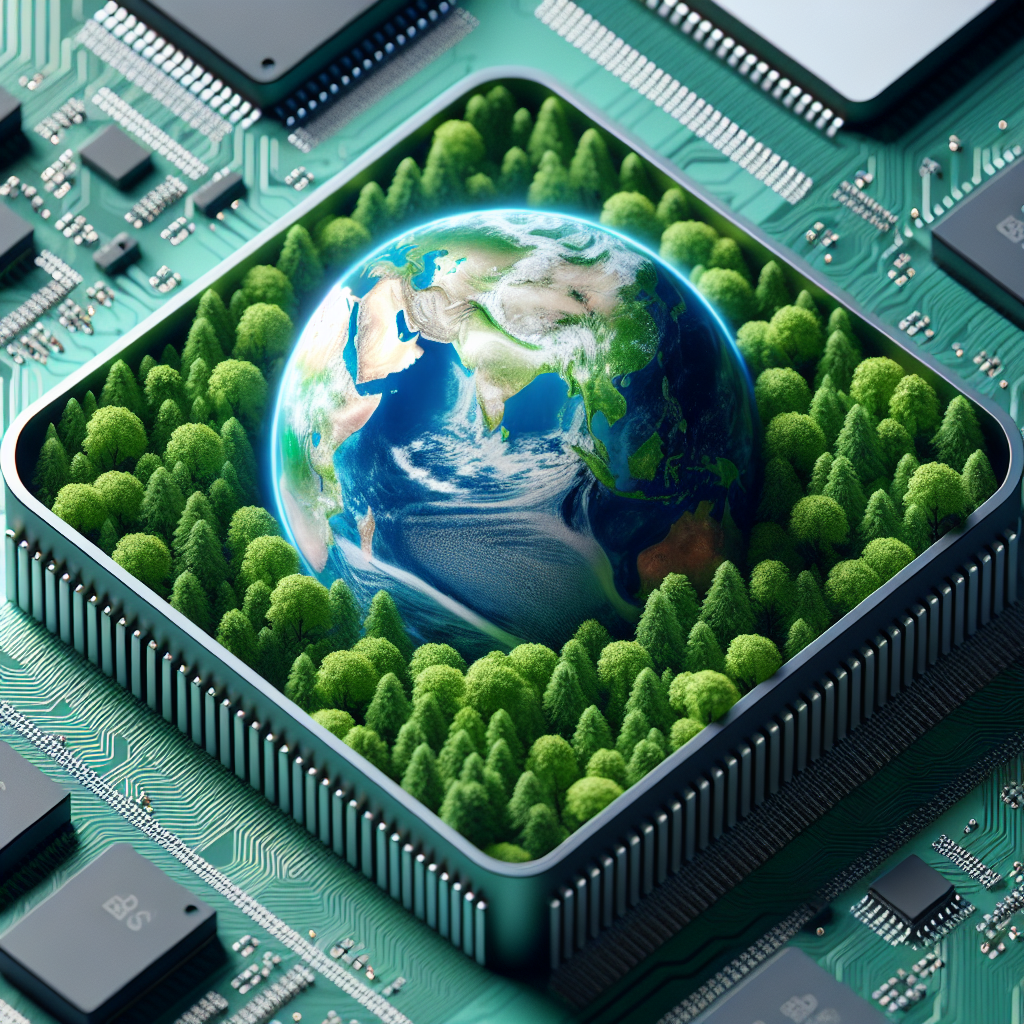Sustainable Development in the Age of AI
In recent years, the rapid advancement of artificial intelligence (AI) technology has revolutionized various industries and sectors, from healthcare to finance to transportation. AI has the potential to drive significant progress in sustainable development goals, as it can help address complex challenges such as climate change, poverty, and inequality. By leveraging AI technologies, we can enhance efficiency, optimize resource utilization, and promote sustainable practices across different domains.
What is Sustainable Development?
Sustainable development is a concept that aims to meet the needs of the present generation without compromising the ability of future generations to meet their own needs. It involves balancing economic growth, social progress, and environmental protection to create a more equitable and sustainable world. Sustainable development goals (SDGs) were established by the United Nations in 2015 as a universal call to action to end poverty, protect the planet, and ensure prosperity for all.
How AI can contribute to Sustainable Development?
AI technologies have the potential to significantly impact sustainable development in various ways:
1. Climate Change Mitigation: AI can help optimize energy consumption, reduce emissions, and improve the efficiency of renewable energy sources. For example, AI algorithms can be used to optimize power grids, monitor and predict weather patterns, and enhance the performance of solar panels and wind turbines.
2. Sustainable Agriculture: AI-powered solutions can improve crop yield, reduce water usage, and minimize pesticide use in agriculture. By analyzing data from sensors, satellites, and drones, AI can help farmers make informed decisions and adopt sustainable farming practices.
3. Environmental Monitoring: AI can analyze large volumes of data from satellites, sensors, and IoT devices to monitor environmental changes and assess the impact of human activities on ecosystems. This information can help policymakers make data-driven decisions to protect biodiversity and ecosystems.
4. Smart Cities: AI technologies can optimize urban planning, transportation systems, and energy usage in cities to reduce congestion, pollution, and waste. By analyzing data from sensors and traffic cameras, AI can improve traffic flow, optimize public transportation routes, and reduce energy consumption in buildings.
5. Healthcare: AI can enhance healthcare delivery, diagnosis, and treatment to improve health outcomes and reduce healthcare costs. By analyzing medical records, genomic data, and imaging scans, AI can help identify diseases early, personalize treatment plans, and improve patient care.
Challenges and Risks of AI in Sustainable Development
While AI holds great promise for sustainable development, there are also challenges and risks that need to be addressed:
1. Data Privacy and Security: AI systems rely on vast amounts of data to train algorithms and make predictions. Ensuring the privacy and security of this data is crucial to prevent misuse and protect individuals’ rights.
2. Bias and Discrimination: AI algorithms can perpetuate bias and discrimination if they are trained on biased data or programmed with biased assumptions. It is important to ensure that AI systems are fair, transparent, and accountable to prevent discrimination against marginalized groups.
3. Job Displacement: AI technologies have the potential to automate repetitive tasks and replace human workers in various industries. It is essential to retrain and reskill workers to adapt to the changing labor market and ensure that no one is left behind.
4. Ethical Considerations: AI systems raise ethical questions about their impact on society, the environment, and future generations. It is essential to consider ethical principles such as transparency, accountability, and fairness when designing and deploying AI technologies.
FAQs
Q: How can AI help address climate change?
A: AI can help optimize energy consumption, reduce emissions, and improve the efficiency of renewable energy sources. By analyzing data and predicting weather patterns, AI can help mitigate the impact of climate change and promote sustainable practices.
Q: What are some examples of AI applications in sustainable development?
A: AI applications in sustainable development include optimizing energy grids, monitoring environmental changes, improving crop yield, enhancing healthcare delivery, and optimizing urban planning in smart cities.
Q: What are the risks of AI in sustainable development?
A: Risks of AI in sustainable development include data privacy and security concerns, bias and discrimination in AI algorithms, job displacement due to automation, and ethical considerations about the impact of AI on society and the environment.
Q: How can we ensure that AI technologies promote sustainable development?
A: To ensure that AI technologies promote sustainable development, we need to prioritize ethical principles such as transparency, accountability, and fairness in AI design and deployment. It is also essential to involve diverse stakeholders in the development and implementation of AI solutions to address societal challenges effectively.

